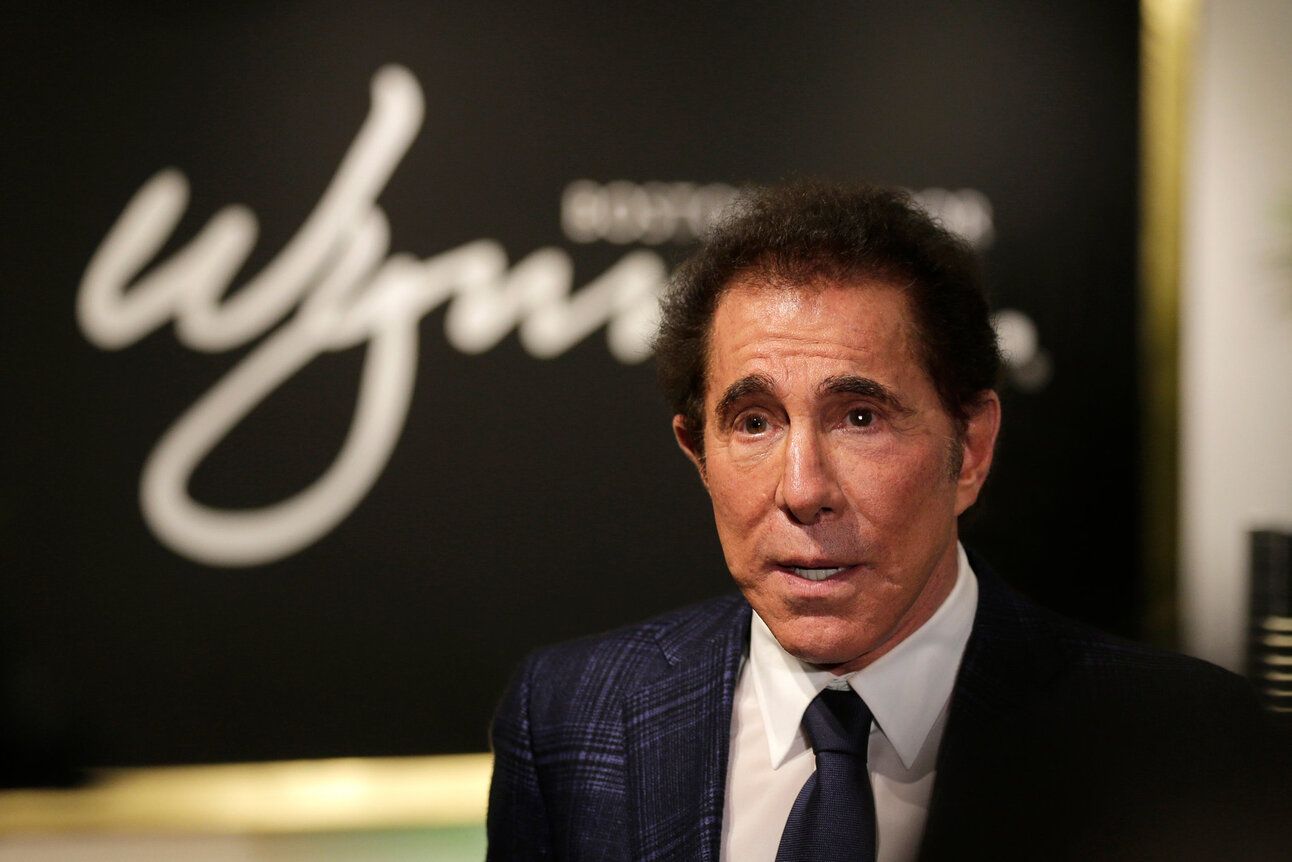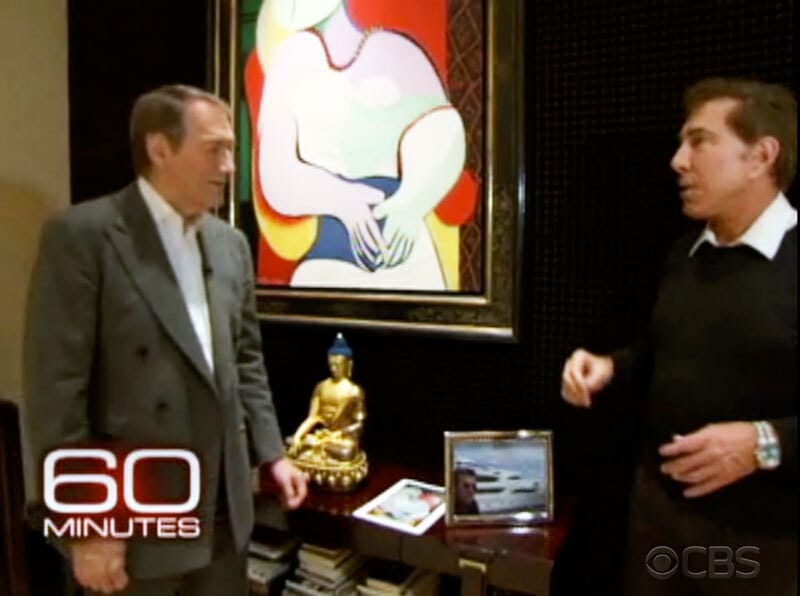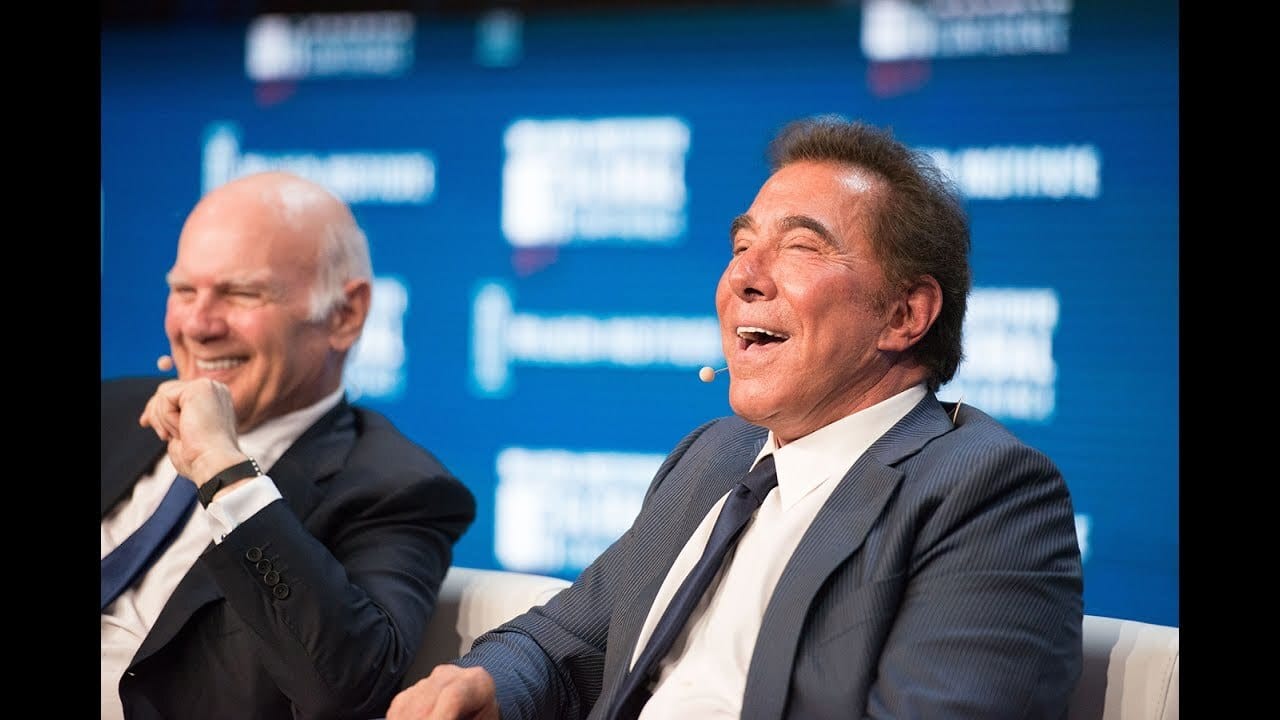- The Weekly Mensch
- Posts
- The Weekly Mensch: Steve Wynn
The Weekly Mensch: Steve Wynn
The story and the insights from the mind of Las Vegas’ architect
Us in a Nutshell
We are passionate about the lives, the impact, and the experience of Jewish baby boomers who have changed our world. From finance to the arts, we write about the stories of contemporary heroes who — significantly and meaningfully — changed the face of their respective industries, often starting with nothing but a legacy of exile. We tell their stories for the timeless lessons of intelligence, ethics, and resilience they underline. And we also share some fun anecdotes! Nathan Tob is a fourth-year student at the Queen Mary University of London. He studies Economics, Finance, and Management. Davy Sokolski is a third-year student at Columbia University in New York. He studies International Political Economy.
What is a Mensch?
Leo Rosten defines mensch as “someone to admire and emulate, someone of noble character.” Dr. Saul Levine writes in Psychology Today that a mensch’s personality characteristics include decency, wisdom, kindness, honesty, trustworthiness, respect, benevolence, compassion, and altruism.
Steve’s Rapid Bio

Stephen Alan Wynn, born on January 27, 1942, in New Haven, Connecticut, grew up in a Jewish-American family that instilled in him a strong work ethic and entrepreneurial spirit. His father, Michael Weinberg, owned a bingo parlor, and after his sudden passing when Wynn was just 21, Steve took over the family business, developing his acumen for entertainment and hospitality.
Wynn attended the University of Pennsylvania, where he majored in English literature, but he ultimately gravitated toward business. In the late 1960s, he made his first significant investment: a small stake in the Frontier Hotel in Las Vegas, marking his entry into the casino industry. By the 1970s, Wynn acquired and transformed the Golden Nugget Hotel and Casino into one of Las Vegas’s most luxurious destinations, solidifying his reputation as a visionary in the industry.
Over the next few decades, Wynn reshaped Las Vegas and the global casino and resort industry. He spearheaded the development of iconic properties like The Mirage, Bellagio, Wynn Las Vegas, and Encore, blending luxury, entertainment, and innovation in ways that redefined the modern casino experience. His projects introduced extravagant features like the Bellagio fountains and high-end shopping and dining options, transforming Las Vegas into a global tourism hub.
Wynn’s influence extended beyond the hospitality industry. He was an active philanthropist, donating millions to causes such as education, medical research, and the arts. In 2011, he pledged $135 million to the University of Iowa for vision research. Despite facing controversies in his later years, Wynn’s impact on Las Vegas and the luxury resort industry remains undeniable.
Today, Steve Wynn is remembered as a pioneer who brought creativity, opulence, and ambition to the hospitality and gaming world, creating experiences that transcended traditional expectations and setting new standards for the industry.
Steve’s Life Lessons
1. Understanding there is an opportunity is half the job
Wynn began his journey with small transactions on the Las Vegas Strip, including the purchase and sale of the Frontier, a modest casino with a few hotel rooms. After completing that deal, Wynn felt disillusioned, believing that “Las Vegas was the underworld,” and considered returning home. However, a Mormon banker offered him pivotal advice: “Steve, you should stay here. The town needs young people—you’ll end up owning the place.” At the time, Wynn’s net worth was just $50,000. With the banker’s support, Wynn secured loans and control positions, including the $12 million he needed to build rooms at the Golden Nugget Casino. Reflecting on his success, Wynn admits, “I was in the right place at the right time. There are an awful lot of hardworking and smart people, but they don’t always find themselves the beneficiaries of timing and opportunity. In my case, I just fell into it.” The accuracy with which one perceives opportunities and the underlying ability to capture these opportunities are fundamental to Wynn’s journey. Everyone ends up being in the right place at the right moment in some particularly good context, the insight necessary to catch it is at the core of talent.
Wynn once said, “In business or in life, you don’t look back. You don’t stay in regret. You find the opportunity in front of you and go for it.” His journey reminds us that challenges can be the breeding ground for innovation and growth when met with courage and creativity.
2. Innovate to elevate the experience
Steve Wynn redefined Las Vegas as a global luxury destination by focusing on innovation. In 1989, The Mirage became the first casino to combine world-class entertainment, luxury accommodations, and groundbreaking design. One unforgettable moment was Wynn’s decision to include a live volcano outside the property—a risky, multimillion-dollar addition that many thought was excessive. Yet, it became an iconic symbol of Las Vegas and attracted millions of visitors. Similarly, at the Bellagio, he introduced the now-famous dancing fountains, creating a spectacle that redefined how people experienced luxury in casinos. In an interview with Uncommon Knowledge, he confesses: “I’ve never been judgemental about people’s gambling behaviors unless they wouldn’t know what they were doing. People do whatever they want with their money. We don’t hustle people to gamble but if you happen to enjoy playing a slot machine, come here. The experience will be more elegant, the service classier and better, the food will taste better.”
Wynn’s philosophy of constant reinvention resonates across industries. He believed, “Las Vegas needs to be reinvented every 10 years.” His career shows that the key to staying ahead isn’t just doing something well—it’s finding bold, creative ways to delight and inspire, creating experiences that people remember for a lifetime.
3. Success is built on teamwork and vision
Wynn often credited his success to his ability to surround himself with top talent and empower them to execute his vision. When designing the Bellagio, Wynn didn’t just hire architects and designers—he brought in world-class artists to create an atmosphere that celebrated art and luxury. The result was a property that blended fine art, culinary excellence, and cutting-edge hospitality in a way that had never been done before. Wynn’s dedication to his team extended to small details; he once personally ensured that a $1 million art installation was hung at just the right angle, showing his hands-on leadership style. Wynn’s career exemplifies the balance between bold vision and calculated risk. He was willing to take immense risks to develop groundbreaking projects but never at the expense of his company’s survival or the livelihoods of his team. For Wynn, entrepreneurship meant embracing discomfort, a quality he described as essential: “Entrepreneurs are strange people with a particular appetite for living uncomfortably.” However, he firmly believed that risks should always be calculated. In an interview with Michael Jackson, Wynn explained his approach: “Before we break ground, we develop a business plan, examine our fundamentals repeatedly, and raise money from the toughest investors because our story is so strong. By then, we are so certain of our direction that it doesn’t feel like risk-taking. I never risk the firm. I can’t promise to always be right, but a solid capital structure ensures we can survive cycles and even our own mistakes.”
Wynn believed, “Great things in business are never done by one person. They’re done by a team of people.” His success reminds us that leadership is ably a combination of vision and building an ecosystem where everyone can contribute to achieving excellence.
The Quote of The Week
“Entrepreneurs live in a very uncomfortable way because there is always a chance of failure. There are some people – very intelligent people – who do not live that way and they are not wrong. They are called regular folks”


Reply